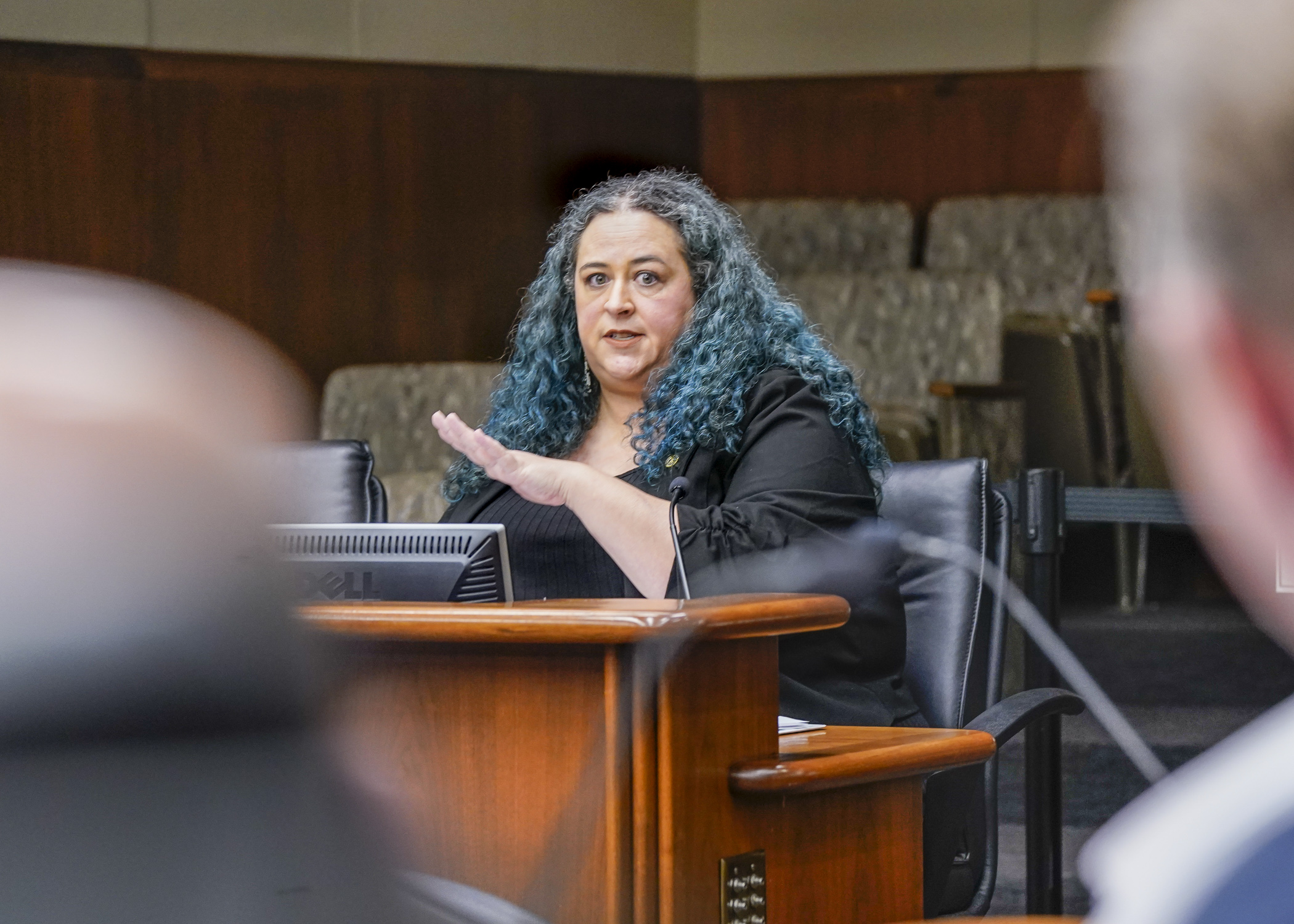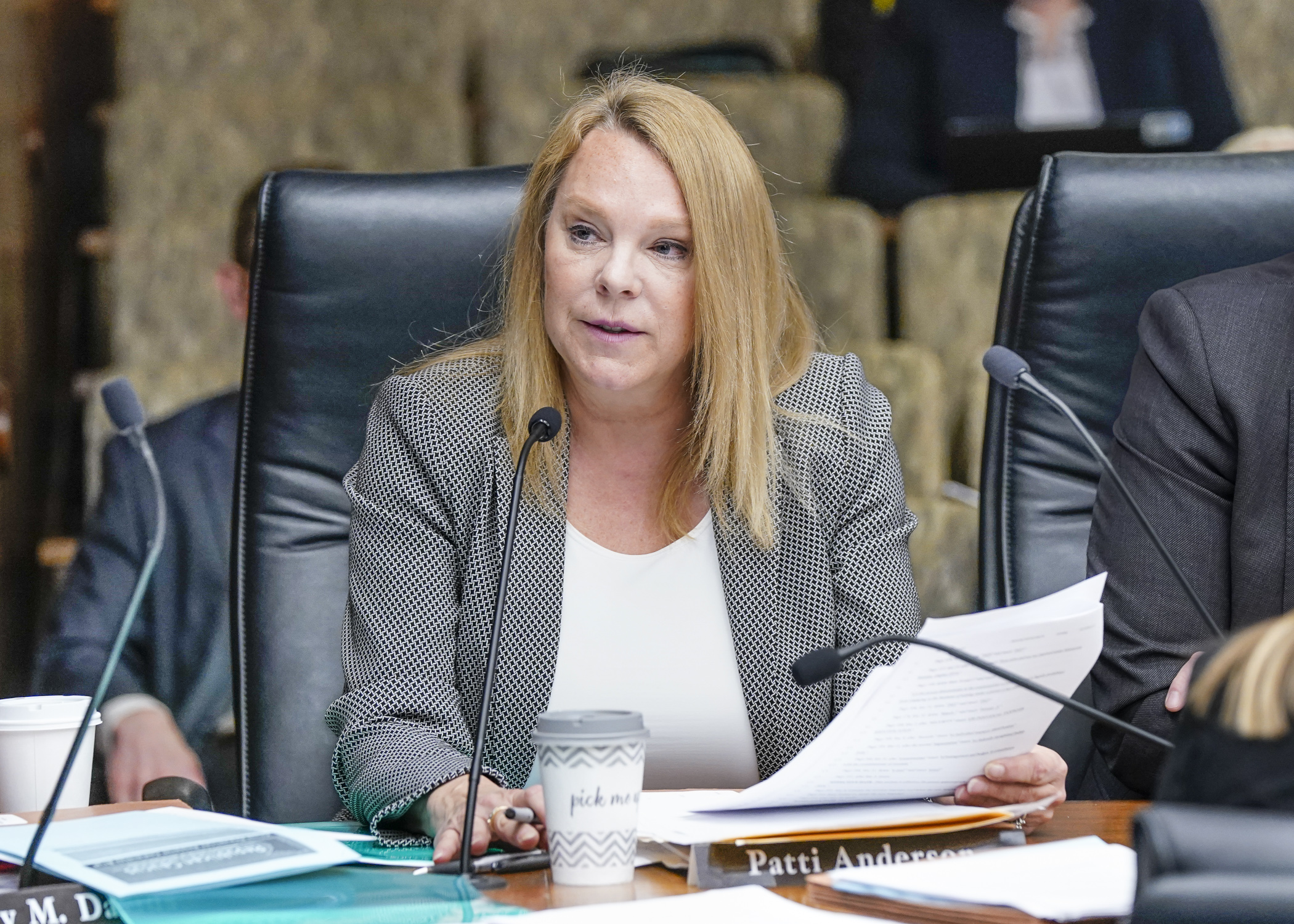Tax committee approves omnibus bill amidst debate over state’s priorities

Will the House omnibus tax bill provide $3 billion in tax cuts? Or will it end up hurting the state in the long run because of higher taxes on higher income earners?
It all depends upon your perspective, and both were expressed over the course of two days of testimony, proposed amendments and discussion in the House Taxes Committee. But, in the end, HF1938, replaced by a delete-all amendment and further amended, was approved by the House Taxes Committee by a 12-8 party-line vote Wednesday and referred to the House Ways and Means Committee.
Sponsored by Rep. Aisha Gomez (DFL-Mpls), the bill would reduce taxes on Minnesota filers by $3 billion by the end of fiscal year 2025, including $1.25 billion for a onetime refundable credit payment, $728.4 million for a tax credit for families with children, and a modified Social Security subtraction that will apply to 76% of Minnesotans receiving such benefits.
While the bill is largely centered around targeted tax relief for lower-income earners, it also would raise revenue from the state’s highest earners by instituting a new fifth income tax tier of 10.85% for those with adjusted gross incomes over $1 million per year (married filing jointly) or $600,000 for single filers.
And it would introduce worldwide combined reporting to the state’s tax structure, which would seek recovery of dollars that Minnesota companies place in offshore tax shelters.
“We have what I believe is a balanced approach,” Gomez said. “We send some direct help out to the people who need it the most. We cut Social Security taxes for those who need it the most. And taking a measured approach to some of these things allows the other pieces of the bill to work.”
[MORE: Learn more about the bill]
Among changes in the state’s tax code that would produce the largest tax cuts would be a refundable renter’s income tax credit and a one-time property tax refund payment. And municipalities and counties would benefit from a tax exemption on construction materials for government projects, and $100 million increases for local government aid, county program aid and local affordable housing aid.
[MORE: View the spreadsheet]
While the committee approved a Gomez amendment that altered some bill language – primarily around the worldwide combined reporting provisions – two other amendments were proposed but not adopted. One sponsored by Rep. Patti Anderson (R-Dellwood) inspired almost an hour of debate. It would have deleted sections of the bill that would alter state law regarding electronic pull tabs.
The bill’s charitable gaming changes were inspired by a February appeals court ruling that the “open all” feature on some electronic pull tabs is too similar to a slot machine, and therefore impermissible for any entities not associated with one of the state’s 11 tribal nations. Bill language would prohibit that “open all” feature and require three buttons to be pushed instead of one on an electronic pull tab.
 Rep. Patti Anderson inquires about last-minute changes to HF1938, the omnibus tax bill, before the House Taxes Committee approved the bill April 19. (Photo by Catherine Davis)
Rep. Patti Anderson inquires about last-minute changes to HF1938, the omnibus tax bill, before the House Taxes Committee approved the bill April 19. (Photo by Catherine Davis)Anderson’s amendment, defeated on a 12-8 party-line vote, would have removed all changes related to electronic pull tabs from the bill. In Gomez’s adopted A13 amendment, some dates for compliance to the changes were moved forward to ease the transition for charities that raise funds through electronic pull tabs.
An amendment offered by Rep. Kristin Robbins (R-Maple Grove) to fully subtract all Social Security benefits from taxes was ruled out of order because its changes would exceed parameters of the budget resolution adopted by the House Ways and Means Committee.
Robbins then crafted an oral amendment that would make the same changes, but effective with fiscal year 2028, and thus outside the financial purview of the tax bill, which only sets tax policy through fiscal year 2027. It was defeated on another 12-8 party-line vote, with Gomez saying such a measure wouldn’t address what other tax cuts would have to be revoked in order to make such a change possible.
“If you’re choosing the top 24% to be winners, then who are you choosing to be losers?” Gomez asked. “Would you cut property tax refunds? Local government aid? Would you go after the child tax credit that’s going to raise children out of poverty? Is that what you’d do to give a billion dollars to the top 24%? Those are the actual decisions that you would have to make.”
“You have some tax relief in here, but it’s very, very targeted,” said Rep. Jon Koznick (R-Lakeville). “I wish we could do more for the average Minnesotan. We’ve failed to deliver on a promise to eliminate the tax on Social Security income. We’ve failed to provide meaningful surplus return to taxpayers.”
“On every measure, our state tax code is not competitive,” Robbins said. “It’s making it harder for Minnesota to attract investment and talent. Adding a fifth income tax tier, especially when we have a huge surplus, is really going to harm our state. We already had the fifth highest income tax rates in the country.”
Related Articles
Search Session Daily
Advanced Search OptionsPriority Dailies
Legislative leaders set 2026 committee deadlines
By Lisa Kaczke Legislative leaders on Tuesday officially set the timeline for getting bills through the committee process during the upcoming 2026 session.
Here are the three deadlines for...
Legislative leaders on Tuesday officially set the timeline for getting bills through the committee process during the upcoming 2026 session.
Here are the three deadlines for...
Latest budget forecast projects nearly $2.5 billion surplus, but red ink down the road
By Mike Cook Three weeks before Christmas, state budget officials provided some merriment to Minnesotans. However, Grinch-like transformations lurk.
Released Thursday, the November ...
Three weeks before Christmas, state budget officials provided some merriment to Minnesotans. However, Grinch-like transformations lurk.
Released Thursday, the November ...